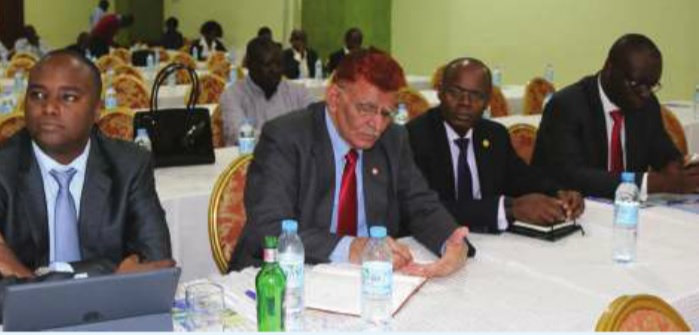
Members of the Parliamentary Committee on the National Economy want the banking industry to do something about the sky-high lending rates. The MPs made the appeal at a meeting with the Uganda Bankers Association in Kampala on Oct.03.
The MPs organised the meeting to understand why interest rates in Uganda have remained high. Wilbrod Owor, the Uganda Bankers Association vice chairperson, attributed the high interest rates to Uganda’s poor saving culture and low tax to GDP ratio.
“Lack of long term capital is forcing banks to use short term money to lend for long term projects, which is a very huge risk,” he said.
Owor said because of Uganda’s low saving culture with only six million bank accounts out of a population of 36 million people (compared to Kenya with 20 million accounts out of a population of 45 million people), there is a shortage of long- term money as deposits are all short term and can be withdrawn at any time by the depositors. Because of the short term deposits, the amount of Non-Performing Loans (NPLs) has shot up to Shs 960 billion representing 8.3% thereby making the cost of doing business in the banking sector high. The NPLs impact heavily on the business of banking and lending because it eats into capital and means the good borrowers will access financing at higher interest rates, Owor said.
However, former Makerere University Economics don Lawrence Bategeka, who now represents Hoima Municipality, accused the bankers of forming a cartel and for using the free market for self interest without considering the public.
Stanbic Managing Director Patrick Mweheire said that in a bid to reduce on the cost of finance, some banks have gone out to borrow money in the syndicated market but it also has its own risks. Three years ago, Stanbic borrowed Shs 85billion while last month they borrowed US$ 55 million from the UAE. “When you compare 6% borrowing in dollars to 15% -20% borrowing in Uganda shillings, you feel you are saving but as you saw last year when the shilling depreciated a lot of people were caught unawares, so we let us be very careful about that because currency mismatch is a big issue,” he said
Fabian Kasi, the bankers’ association chairman, who also doubles as the managing director of Centenary Bank, reassured the MPs and the public that the banking sector is promoting a sound banking environment. Several weeks ago, the government of Kenya took an unprecedented move to cap interest rates at 14%, a development that sent jitters in both the local and regional markets with calls on the government in Uganda to pursue similar drastic measures if the economy is to rebound.
****
editor@independent.co.ug
 The Independent Uganda: You get the Truth we Pay the Price
The Independent Uganda: You get the Truth we Pay the Price



